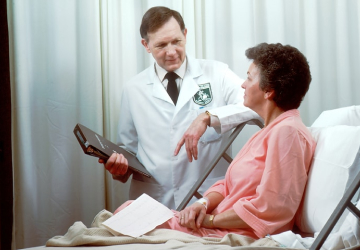In the intricate tapestry of life, few roles are as noble and impactful as that of a caregiver. For elderly individuals navigating the complexities of aging, caregivers serve as beacons of compassion, support, and unwavering dedication. In this blog post, we explore the profound difference that caregivers make in the lives of elder people, illuminating the invaluable contributions they offer and the transformative impact they have on those they care for.
Providing Physical Assistance and Support
- Assistance with Activities of Daily Living: Caregivers play a crucial role in assisting elder people with activities of daily living, such as bathing, dressing, grooming, and meal preparation. Their compassionate support helps maintain independence and dignity, even in the face of physical challenges.
- Mobility and Transportation: Caregivers often provide transportation and assistance with mobility, ensuring that elder individuals can access essential services, appointments, and social activities. Their reliability and attentiveness enable elders to remain engaged in their communities and connected to the world around them.
Offering Emotional Comfort and Companionship
- Emotional Support: Beyond physical care, caregivers offer emotional comfort and companionship to elder people, providing a listening ear, a shoulder to lean on, and unwavering empathy. Their presence brings solace and reassurance, especially during times of loneliness, sadness, or uncertainty.
- Fostering Meaningful Connections: Caregivers facilitate meaningful connections and social interactions for elder individuals, whether it’s through shared activities, outings, or simply spending quality time together. Their companionship combats feelings of isolation and fosters a sense of belonging and connection.
Advocating for Healthcare Needs and Well-being
- Navigating Healthcare Systems: Caregivers serve as advocates for elder people’s healthcare needs, navigating complex healthcare systems, scheduling appointments, and ensuring that medications are taken as prescribed. Their advocacy ensures that elders receive the care and support they need to thrive.
- Monitoring Health and Wellness: Caregivers play a vital role in monitoring elder people’s health and wellness, observing changes in physical or cognitive functioning and alerting healthcare professionals as needed. Their vigilance and attention to detail contribute to early intervention and improved health outcomes.
Enhancing Quality of Life and Overall Well-being
- Promoting Independence and Autonomy: Caregivers empower elder people to maintain independence and autonomy to the greatest extent possible, respecting their preferences, choices, and desires. Their support fosters a sense of empowerment and self-confidence, enhancing quality of life and overall well-being.
- Creating a Safe and Nurturing Environment: Caregivers create a safe and nurturing environment where elder individuals can thrive, free from worry or fear. Their dedication and commitment ensure that elders feel respected, valued, and cherished, even in the face of life’s challenges.
Conclusion
In conclusion, caregivers are the unsung heroes who make a profound difference in the lives of elder people every day. Through their compassionate care, unwavering support, and boundless empathy, they uplift spirits, ease burdens, and bring comfort to those they serve. Let us honor and celebrate the invaluable contributions of caregivers, recognizing the immeasurable impact they have on elder people’s lives and the profound legacy of love and compassion they leave behind.


